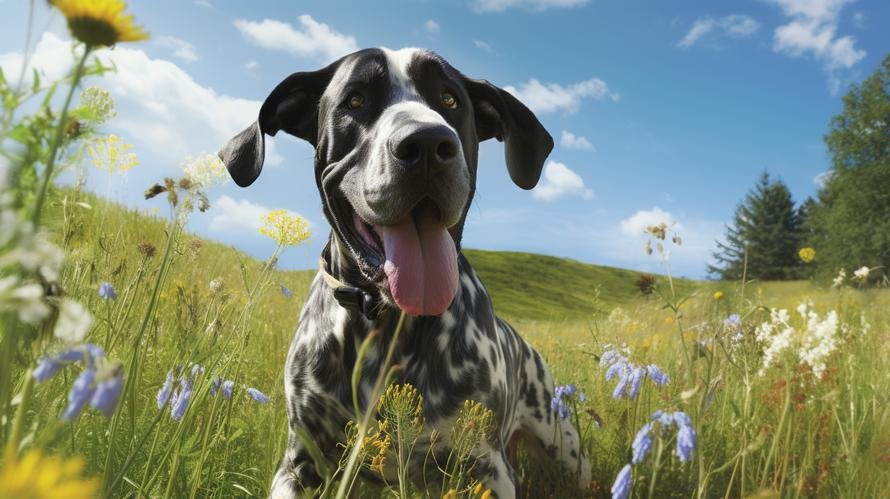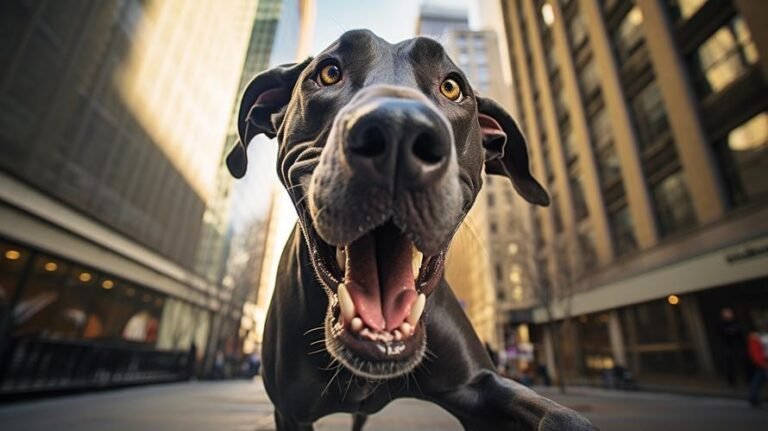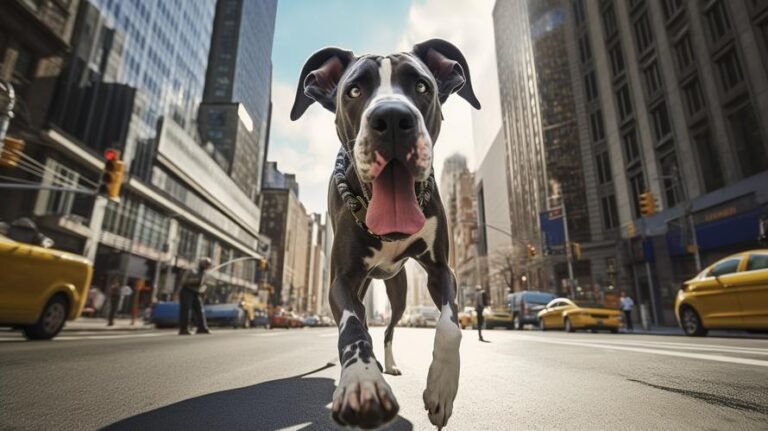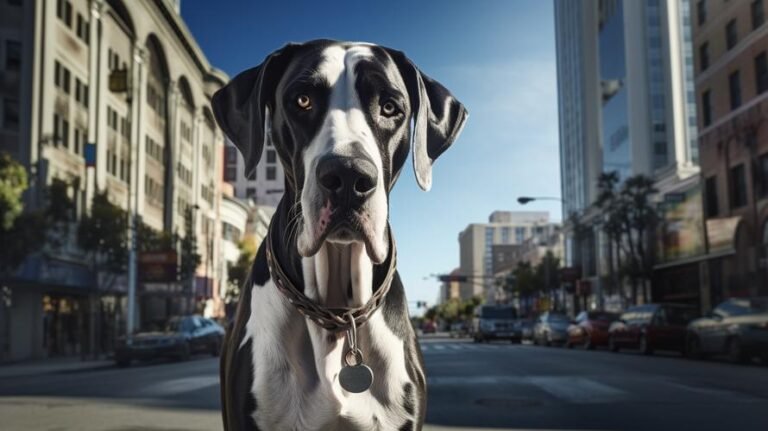So, you’re considering inviting a Great Dane into your home or maybe you’ve already the leap of love and you’re now a proud owner of one of these magnificent creatures. Known for their impressive size and heart-warming demeanor, Great Danes are an absolute joy to be around, aren’t they? Now, let’s get down to an essential aspect of their well-being: their diet. You see, it’s not just their enormous size but their unique dietary requirements that distinguish them from other furry family members.
Before you start questioning why you can’t simply treat them like any other dog when it comes to their meals, allow me to explain why that’s not a good idea. Despite their intimidating stature, Great Danes are gentle giants with sensitive digestive systems. See, unlike most dog breeds, these mammoth dogs experience an accelerated growth rate, especially during the first year of their lives. By the time they are two years old, most Great Danes have reached full maturity – a feat smaller breeds often only achieve after 4 years.
Now I know you’re shaking your head, thinking, “What does this have to do with feeding my Great Dane?” Well, bear with me a bit longer. Their rapid growth rate demands a plethora of nutrients: proteins for muscle building, carbohydrates for energy, fats for the coat’s shine, and several minerals and vitamins for overall immunity. Yet, the paradox lies in their delicate digestive system, which cannot handle too many nutrients at once. And that, right there, is what makes the diet planning of a Great Dane more challenging compared to other breeds.
Feeding a Great Dane doesn’t mean piling on mountains of food in their bowl and letting them feast away. On the contrary, doing so could lead to a lethal condition known as Bloat – a swift and terrifying occurrence where the dog’s stomach distends and twists. It’s the number one killer among Great Danes. That’s why it’s important to understand their diet and ensure they have well distributed meals, both in terms of quantity and timings.
So, what food works best for Great Danes? A quick walk down any pet food aisle in supermarkets would drown you in countless options – grain-free, gluten-free, raw diet, high protein, low-fat and the list goes on. However, the needs of a Great Dane are unique. While most brands may claim to be suitable for all breeds, Great Danes argue otherwise with their special requirements.
A study conducted in 2013 by the “Journal of the American Veterinary Medical Association” indicated that Great Danes benefit from foods rich in meat-based protein and low in fat. This study suggests that a protein concentration of about 23-29% and a fat concentration of about 12-18% is ideal for these gentle giants. However, be aware that a high protein diet does not equate to more muscle. Rather, it can overburden their organs and cause problems.
Another factor to take into consideration is grain. Although grain-free options may seem appealing, they are not always a good idea. Some dogs, like Great Danes, huge breed dogs, need the energy that grains provide. That being said, it is crucial to make sure that the grains are wholesome and not processed. Also, look for dog foods with a minimal ingredient list to avoid unnecessary fillers and additives.
Great Danes also require an adequate amount of calcium, but not too much. Overindulging in calcium may cause orthopedic problems, specifically in their fast-growing phase. Thus, a good rule of thumb is to keep the calcium level at about 1.5%.
As for portion control, Great Danes should be fed three to four times a day when they’re puppies to prevent overloading their delicate digestive system. As they grow older, you can gradually reduce it to two meals per day. Never skip a meal and avoid feeding them immediately before or after exercise to prevent Bloat.
It may seem exhausting, but finding the right balance in diet and portion sizes for Great Danes goes a long way to ensure their optimum health and longevity.
Still confused? That’s okay. Ask your vet, do some research, or join an online group for Great Dane owners. As a loving dog parent, you surely want the best for your Gentle Giant. Remember, love is not just about cuddling and fetching balls. Sometimes, it’s about learning the unique traits of your four-legged companion and doing what’s best for them.
To sum up, Great Danes do need special food. It’s not about premium brands, but about the right proportion of essential nutrients. After all, a healthy dog is a happy dog, and I bet nothing delights you more than a wagging tail and those beautiful, bright eyes staring lovingly at you. So, go ahead and embrace this big responsibility—you’re going to do great with your Great Dane!



